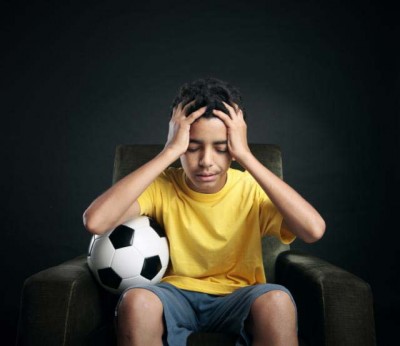Zuriel Lozano
Goalkeeper coaching styles
There is a BIG difference between TRAINING a goalkeeper and DEVELOPING a goalkeeper.
I’m very sure that you have encountered many coaches, who, before they even say their names, they talk about their winning records, championships, their “national rankings” and their tons of certifications they’ve gained over the years. It seems as if their egos and history of winning records are more important than developing quality players.
Today, most professional coaches who are either former college or professional players who played in the in the MLS. After their collegiate or professional careers, they are now obligated to find a job in soccer somewhere. The most accessible career is becoming a coach at a youth club. Some coaches get into youth coaching for all the right reasons, unfortunately, some are there just to pick up a paycheck and invest only what is minimally required of them.
On the other hand, I’ve worked with many coaches who will bend over backwards for ALL of their goalkeepers / player, and they are always looking out for the best interest of their keepers despite how good or how bad their keepers or players are. Generally, these coaches are humble, extremely knowledgeable of the game and with an amazing playing background that they will not share unless you ask them.
Today, many goalkeeper training programs are almost MACRO MANAGERS, meaning that coaches will tell you “this is the way you will do it because I’m the coach”. They will correct every tiny mistake that is not in accordance with their format. It can be a SUFFOCATING training style.
The Video Coach
Coaches who create their weekly training sessions by watching videos from their favorite English Premier League teams, local pro team or something that they saw Petr Cech do on YouTube.
The problem is that there are NO amateur youth club goalkeepers ready to play in the English Premier League, nor understand what it is like to train at that level. These are desperate coaches looking for something new to do before their kids lose interest in goalkeeping!
Large Group Trainings
Coaches who are overwhelmed with the large number of goalkeepers at their club training sessions. This is particularly hard to do because the goalkeeper position is a specialized and individual position. Therefore, in order to really help a goalkeeper, the training has to be individualized (just like a pro keeper). But in large group trainings, only FEW will benefit but NOT all. Coaches then turn more like well-paid babysitters rather than advanced coaches.
KEY points for 21st century goalkeeper training:
To help goalkeeper’s reach their FULL POTENTIAL, coaches will need to understand that training a goalkeeper is not only about transferring knowledge, but it is about creating an environment where the goalkeepers can reproduce their own new ideas into endless possibilities!
Developing a goalkeeper is MORE than just drills.
To maximize your potential as a goalkeeper, your coach must understand who you are as a goalkeeper, and they must be willing to understand that EVERY goalkeeper has their own personality, style and taste. But often coaches have a LARGE group of goalkeepers or players and even if more coaches are hired this DOES NOT guarantee more attention to the goalkeepers.
Lastly, it is so easy to train a goalkeeper who is tall, fast and a natural athlete. Those are the keepers that some coaches give the most attention to and brag about the most. But even these “natural athlete/goalkeepers” will PLATEAU if their training is always the same rhythm, predictable and sporadically challenging. This can make these goalkeepers very complacent and EXTREMELY slow keepers.
21st-century goalkeeper coaching requires creativity. It is beyond simply memorizing a book and then passing a test. It is beyond doing the drills the perfect way to satisfy the coach. Furthermore, it is more than bragging rights.
Make sure your training takes you on a journey where you will never know what to expect so that on match day there will be no surprises, only the satisfaction that your training helped you get ready for match day.
More to explorer
Soccer parents, are you exhausted?
You seem to be living your life according to youth club soccer. An intense emotional roller coaster is experienced by parents throughout the United States as their children progress through their youth soccer careers. You may not think so, but being a youth soccer parent is exhausting emotionally and physically. Many parents have developed serious
Who stresses more during games parents or athletes?
Nervous soccer parents

Understanding Athlete Burnout
Athlete burnout is defined by Sport Psychologists as: physical/emotional exhaustion, sport devaluation, reduced athletic performance and accomplishment”. Burnout can happen at a very young age. I have personally met many 12-year-olds who show severe signs of burnout. Unfortunately, a number of parents refuse to believe their children are too young to burn out, insisting that what their children require is